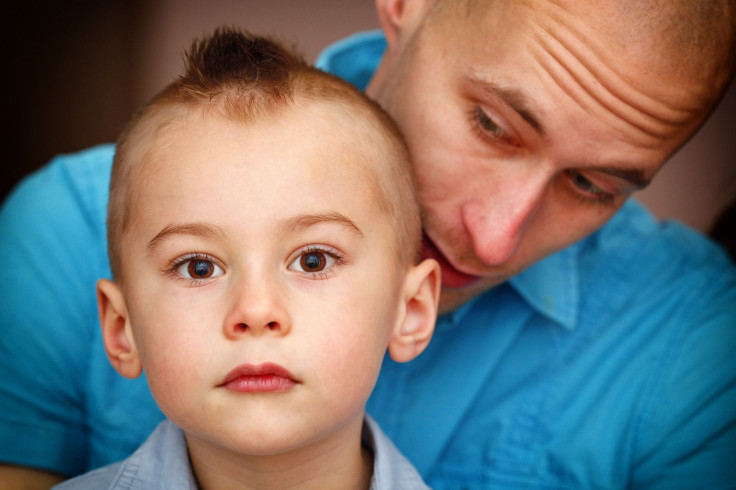The Importance Of A Father’s Love: The Role Dads Play In Child Development

Most of us imagine a mother when asked to think of a nurturing parental figure. Even as modern dads take on their fair share of the work that comes with raising kids, many children — particularly young ones — prefer their mothers due to the physical bond they have shared since before birth. But this Father’s Day, it’s important to remember that dads are just as invaluable to children’s physical, emotional, and intellectual growth as mothers. If you don’t believe it, the science proves it.
A History Of Dads
For centuries, the man of the house was both breadwinner and provider, while mothers — equipped with an inherent, biological ability to nurture — took on the role of caretaker. As a result, it was the mother (or another maternal figure like a grandmother, nurse, or nanny) who was there for her children every hour of the day, who dried her kids’ tears and sang them to sleep. It was the mother who provided most of the physical and emotional support — hugging, kissing, cradling — that every child needs for healthy growth. For a good chunk of history, especially during the industrial era, fathers were relegated to the role of distant provider.
Up until the 1960s and 70s, men and women had clear, defined roles when it came to work, home, and children. That all changed when more women started going to work and gaining additional power and financial independence. Today, the notion of the stay-at-home dad is almost as popular as that of the housewife, as more mothers have begun shouldering simultaneous roles of provider and caretaker. This has upset the man’s role in a family, often leaving him in a confused space.
Female “increase in financial power made paternal financial support less necessary for some families,” the American Psychological Association (APA) notes. “In tandem with the growing autonomy of women, related trends such as declining fertility, increasing rates of divorce and remarriage, and childbirth outside of marriage have resulted in a transition from traditional to multiple undefined roles for many fathers.”
Family dynamics have also changed due to the fact that two-parent households have become less common, dropping by 1.2 million within a decade, according to the U.S. Census. As a result, nearly one in three kids live without their fathers. Still, the APA notes that the dads who are around are more engaged in family caretaking than ever before — and more research into the father’s role has accumulated as a result over the past few decades. In short, researchers conclude that fathers are just as important to a child’s development as mothers are, and for totally different reasons. As Dr. David Popenoe, a sociology professor and author of Families Without Fathers, put it, “Fathers are far more than just ‘second adults’ in the home.”
Kids With Good Dads Are More Intellectually-Inclined
Research has shown that fathers — or the absence of fathers — are just as important as mothers in child development. In a 2002 review of various studies on the father’s role in child development, researchers found consistent evidence that children of involved fathers were more likely to show cognitive competence and educational success than those whose fathers weren’t engaged, and were also more likely to enjoy school and take part in more extracurricular activities.
Kids With Good Dads Have Fewer Behavioral And Emotional Problems
Over the years, research has shown that kids with good fathers are more likely to grow up without aggression, low self-esteem, or behavioral issues. Involved fatherhood has been linked with greater resilience to stress and frustration, as well as better abilities to solve problems and adapt. Kids who grow up with a dad present are less likely to develop substance abuse problems or to become incarcerated as adults. Perhaps most importantly, kids who grew up with involved fathers have been shown to have a lower risk of depression.
Fathers Impact Their Kids’ Later Relationships
A father acts as a role model for his kids, and the way he treats the children’s mother will impact the children later in life. Research has shown that boys whose fathers exhibited respect towards their spouses were less likely to show aggression to females later on, while daughters were less likely to maintain violent or unhealthy relationships with men.
Paternal Absence Takes Its Toll
When talking about the importance of fathers, it perhaps becomes even clearer when we look at what happens when fathers aren’t there. From an economic standpoint, fatherless children are more likely to be poor; data from 2011 found that 12 percent of children in married-couple families were living in poverty, compared to 44 percent of kids living in single-mother families.
For daughters, the lack of a father figure has been correlated with a greater risk of teen pregnancy or early marriage before education is complete. Fathers act as protectors both physically and emotionally; as the traditionally strong, manly figures in the family, they may act as barriers to anything from bullying to child abuse. According to a 2009 study using data from the Fragile Families and Child Wellbeing Study, children without their biological fathers were more likely to be abused or neglected, oftentimes by the non-biological father or the man dating their mother. When a biological dad is around, kids are more likely to be protected.
Perhaps it all comes down to the fact that kids simply need their fathers, because fathers provide them with something quite different from mothers. In an interview with Salon, Kyle Pruett, a Yale psychiatrist who has studied fathering, discusses a “fatherneed” or “father hunger,” noting that there’s an “inherent hunger that children have for the fathering experience. If children don’t have a biological father available, they look for fathering from the men in their lives.” Fathers aid significantly in the social, emotional, and intellectual development of their children.



























